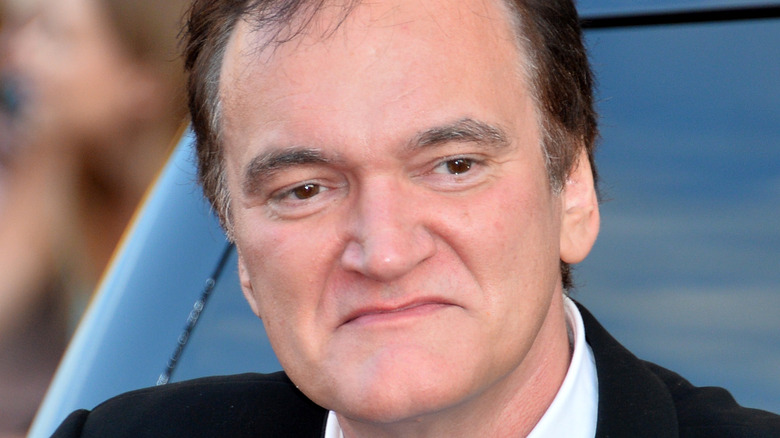
Quentin Tarantino is one of the most influential American filmmakers of all time. In the three decades that Tarantino has been making films, he has inspired countless imitators, but few have had the impact he has -- Tarantino's 1992 directorial debut "Reservoir Dogs" literally changed the state of independent cinema. At the time, it was rare for a self-financed film to reach mainstream audiences, but following an energetic response at the Sundance Film Festival, "Reservoir Dogs" was acquired by Miramax Films and given a wide release.
The success allowed Tarantino to helm "Pulp Fiction" two years later, and Tarantino became a superstar. The film stormed the box office, won the Palm d'Or at the Cannes Film Festival, and earned seven Academy Awards nominations, with Tarantino winning for best original screenplay. The ensemble neo-noir was an instant classic, and is often cited as one of the greatest films ever made.
Since then, a "Tarantino film" has become a genre of its own. In an era overloaded by franchise films in which intellectual properties overshadow individual directors, Tarantino has his own unique brand and loyal fanbase. And yet, although his impact is nearly unparalleled, Tarantino has directed relatively few films. He has stated his desire to retire after completing his next movie, and has mentioned many potential projects that he didn't end up completing (or, in some cases, even starting). These are some of the Tarantino projects that we never got to see, but we wish we could have.
My Best Friend's Birthday
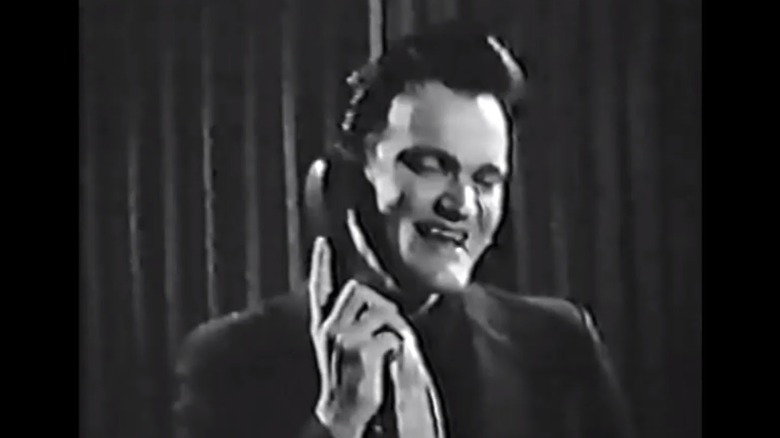
"Reservoir Dogs" is one of the coolest debut films from any filmmaker. While it was the first Tarantino project ever released theatrically, it's technically not his first directorial effort. A tragic accident resulted in Tarantino's first amateur film becoming lost forever.
While he was still working as a video store clerk at Video Archives in Miami during the '80s, Tarantino wrote a short 40-page script for the buddy comedy "My Best Friend's Birthday." Tarantino became invested in the story and decided to expand it into a 70-minute feature. With a budget of only $5,000, Tarantino acquired a 16mm camera and began production. Tarantino starred in the film himself and cast members of the acting class he'd enrolled in to fill out the ensemble. Among them was Roger Avary, who would later co-write "Pulp Fiction" with Tarantino and share his Oscar win.
Tarantino starred in the movie as the rowdy Clarence Pool, who's heartbroken to hear that his best friend Mickey Burnett (Craig Hamann) was dumped by his longtime girlfriend on his birthday. Clarence is determined to save his friend's celebration, and treats him to a wild evening, during which the two get into increasingly outrageous situations. Tarantino compared the tone to the style of Dean Martin and Jerry Lewis comedy. However, a fire in the film editing lab destroyed many of the reels before Tarantino ever got to finish it. The surviving 36 minutes has been screened at select film festivals and is available on YouTube.
The Vega Brothers
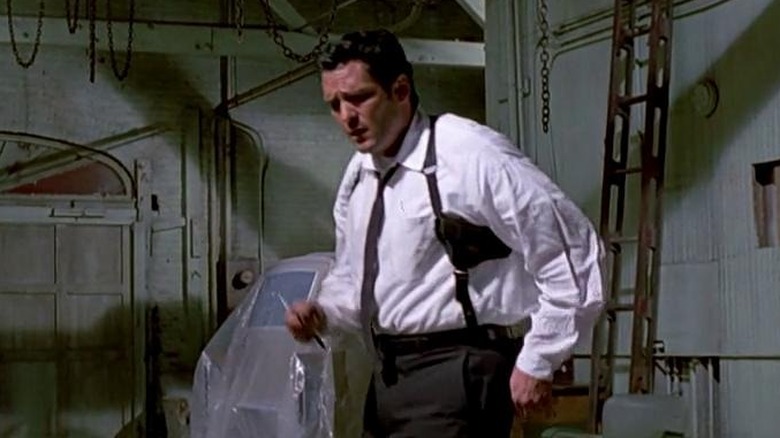
One of the standout elements of Tarantino's films is that they take place in the same universe. Many of the same product brands, including Acuña Boys Tex-Mex Food, Big Kahuna Burger, G.O. Juice, Jack Rabbit Slim's, and Red Apple Cigarettes have appeared in multiple Tarantino films, as he dislikes using product placement. The characters Vincent Vega (John Travolta) from "Pulp Fiction" and Vic Vega (Michael Madsen) from "Reservoir Dogs" are actually brothers, and at one point Tarantino considered reuniting his stars for an origin film.
Tentatively titled "Double V Vega," Tarantino planned to explore the period when Vincent was working under the ruthless mafia boss Marsellus Wallace (Ving Rhames) in Amsterdam, and Vic was fluctuating between heist teams. As both brothers are killed in their respective films, the Vega Brothers crossover had to be a prequel. Tarantino envisioned the story as having split timeline; in the second, Vic and Vincent's two older brothers would reunite to get vengeance.
Enough time has passed that Travolta and Madsen would no longer be believable as their younger selves. Given Tarantino's infrequent use of CGI, it seems unlikely that he would consider using digital de-aging visual effects. Still, Tarantino has never created a real franchise (he considers "Kill Bill" to be a singular film), and the abandoned Vega Brothers pitch could have completed one of the greatest trilogies of all-time.
Casino Royale
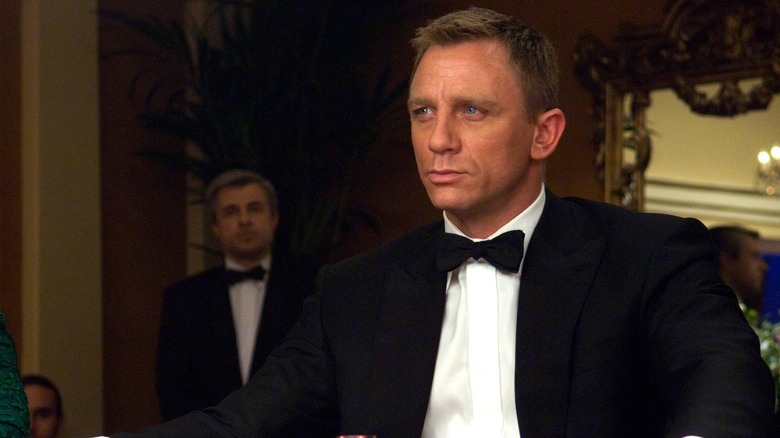
A longstanding rule established by the Broccoli family, which controls the James Bond franchise, is that 007 must be played by a British actor, and each film must come from a British director. While this tradition finally changed with "No Time to Die," helmed by American filmmaker Cary Joji Fukunaga, it prevented non-British filmmakers who were interested in the series from directing an installment for decades. Among them was Tarantino, who made a serious bid to direct a Bond film in 2004.
Tarantino wanted to adapt the first Ian Fleming novel "Casino Royale," which at the time had only been brought to the screen as a parody film produced outside of the EON label. Tarantino intended to bring back Pierce Brosnan, but wanted to shake up the tone of his Bond run. While Brosnan's debut in "GoldEneye" is a brilliant reintroduction of the character and "Tomorrow Never Dies" is a respectable second entry, his last two films, "The World Is Not Enough" and "Die Another Day," descend into over-the-top campiness. Tarantino wanted to bring 007 back to the gritty roots of Fleming's novels and tell a smaller-scale story.
Brosnan was enthusiastic about the idea and even approached the Broccolis, but they weren't fans of Tarantino's pitch and later decided to drop Brosnan from the role altogether. Ironically, Tarantino's description is fairly similar to what the next Bond film actually looked like, as Daniel Craig's debut in "Casino Royale" was a darker origin story.
Star Trek
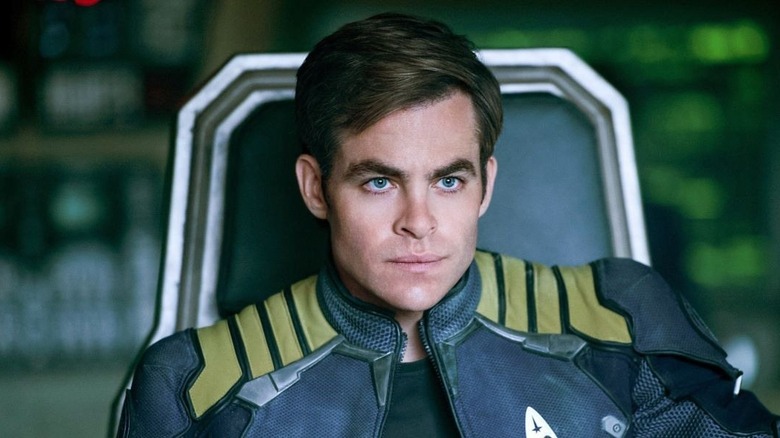
Tarantino has explored many different genres, but he's yet to make a science fiction film. However, he seriously considered helming an entry in one of the most famous sci-fi franchises of all-time. In 2017, Tarantino pitched a new "Star Trek" film to Paramount Pictures alongside J.J. Abrams. While a script inspired by Tarantino's concept would have been written "The Revenant" scribe Mark L. Smith, Tarantino was planning to direct.
Although Tarantino's film would've likely been a drastic tonal shift for the series, he didn't plan on dropping the existing cast. Tarantino is a big fan of Chris Pine, and stated that not only is the current Captain Kirk his favorite young actor of the latest generation of stars, but it was Pine's performance in Abrams' "Star Trek" reboot that inspired his pitch. The prospect was popular among the current ensemble -- Karl Urban (Dr. Leonard McCoy) stated that it would be a "dream come true." The story was set to involve time travel, with the crew of the Enterprise venturing to the '30s in a tribute to classic gangster films. Harkening back to "Star Trek: The Original Series," the film would have been a one-off adventure.
Tarantino ultimately decided not to pursue "Star Trek," but still hopes the script will be taken on by another filmmaker. At the very least, Tarantino would certainly have injected new life into a series that's existed for over 50 years.
First Blood
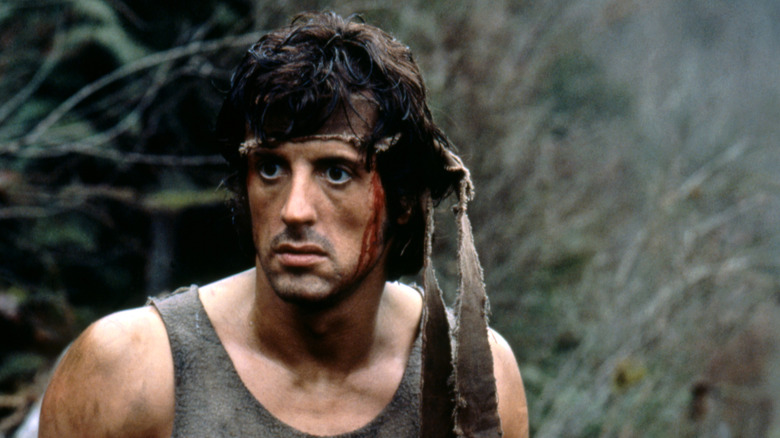
While some of Tarantino's unproduced movies made it close to production, he also likes to throw out cool ideas that sound full-realized, even if he has no intention of actually making them. In a recent interview, Tarantino expressed interest in his own interpretation of "First Blood." Unlike the 1982 classic starring Sylvester Stallone, Tarantino envisioned a more faithful adaptation of David Morrell's original novel.
The Stallone film doesn't have a lot in common with the original text outside of the basic concept of John Rambo, a traumatized Vietnam War veteran who goes on the run after accidentally assaulting a police officer while suffering from post-traumatic stress disorder. The film takes place in a small town in the Pacific Northwest and depicts a more sensitive Rambo. The book is based in Kentucky and features a haphazardly violent protagonist that brutalizes his National Guard pursuers. Stallone famously changed the novel's tragic ending in order to give veterans a more hopeful message. An alternate ending was shot, but not used.
Tarantino imagined Adam Driver in the lead role, with Kurt Russell playing the villainous Sheriff William Teasle. Driver has yet to work with Tarantino, and the physicality of the role would certainly be an intriguing challenge for the committed young actor. Russell is a Tarantino favorite, and would be a terrifying antagonist as a corrupt law enforcement official. The "Rambo" franchise has gone downhill since its '80s heyday; Tarantino could return it to its gritty roots.
Luke Cage
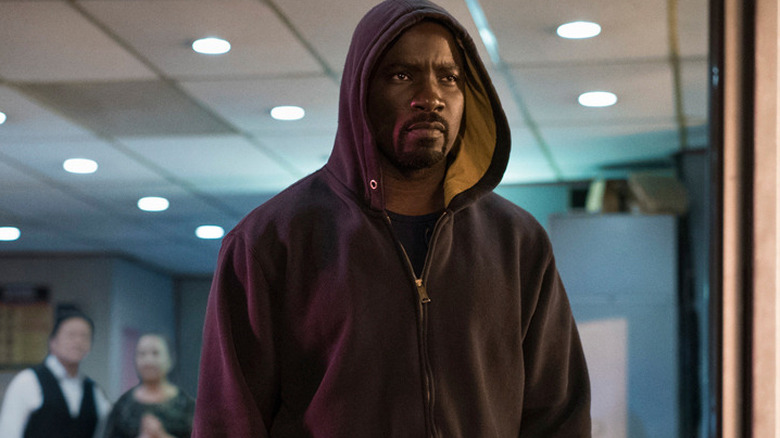
While some of the industry's greatest filmmakers, including Martin Scorsese and Denis Villenueve, have expressed disinterest in Marvel movies, Tarantino actually tried to make one. Shortly after the success of "Reservoir Dogs," Tarantino approached producer Ed Pressman about doing a "Luke Cage" film. Tarantino cited Harlem's "Hero for Hire" as his favorite superhero, but opted to film "Pulp Fiction" instead.
Tarantino had a specific era in mind. Unlike the Netflix series set in modern day, Tarantino adored the '70s setting of the first run of "Luke Cage" comics. He recommended that fans of the show read the original run first, and stated it "was really Marvel's attempt to try to do a blacksploitation movie vibe." Although the project was never seriously developed, Tarantino knew he wanted Laurence Fishburne in the lead role (Fishburne famously turned down Tarantino's offer to play Marsellus Wallace in "Pulp Fiction").
The state of the Luke Cage character is in flux, as Disney has not yet made any concrete announcements about any of the heroes that appeared in the cancelled Netflix shows. As such, "Luke Cage" may benefit from a new approach. While Mike Colter was brilliant in the lead role, the Netflix series suffered from unfocused storylines and inconsistent villains. A grounded, street-level hero would be a perfect fit for Tarantino.
Silver Surfer
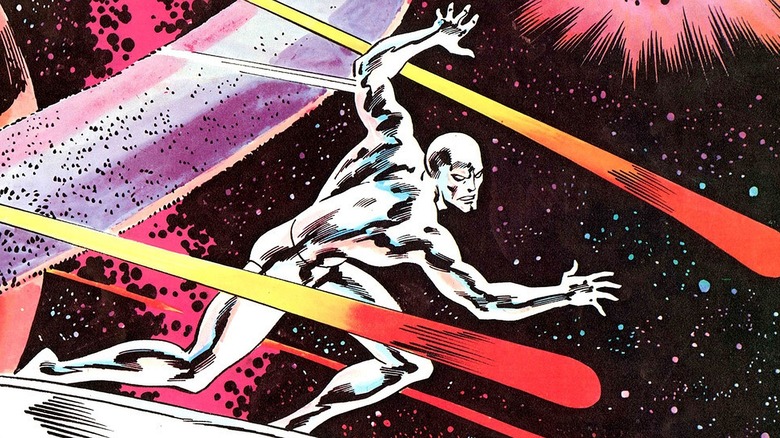
Marvel's cosmic hero Silver Surfer has had a treacherous road to the big screen. Visual effects artists Erik Fleming and Robert Letterman approached Constantin Films, which owned the rights to the character, in 1989 with a groundbreaking vision of a special effects-laden adventure, shortly before James Cameron's "Terminator 2: Judgment Day" changed the use of CGI forever. While they produced an early short film, the project was ultimately abandoned. Another attempt by "Se7en" screenwriter Andrew Kevin Walker also failed to see the light of day.
When the character finally appeared on the big screen in 2007's "Fantastic Four: Rise of the Silver Surfer," the film underperformed and was met with critical disdain. It marked the end of that iteration of the "Fantastic Four" series, and any plans for a spinoff using Doug Jones' performance capture and Laurence Fishburne's voice were never pursued.
However, these difficulties may have been avoided if Tarantino's "Silver Surfer" film had been greenlit. Right after the success of "Reservoir Dogs," an ambitious Tarantino approached Constantin Films with a completed script. Constantin passed. Although Tarantino didn't quite have the same reputation pre-"Pulp Fiction," the studio may have regretted its decision in hindsight. An epic space odyssey would have been a change of pace for Tarantino, but he could have dug into the character's complicated conflicting loyalties. As he plans to only direct one more film, it seems unlikely that Tarantino will approach Marvel again, leaving us to imagine what could've been.
The Man From U.N.C.L.E.
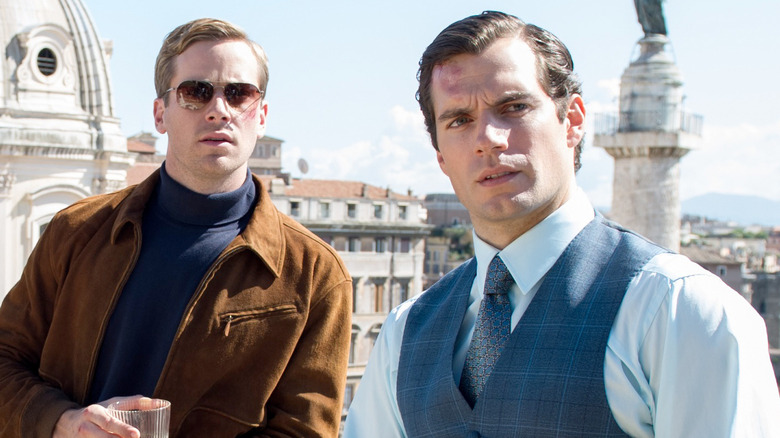
Following the financial disappointment of "Grindhouse," studios saw an opportunity to make Tarantino a director for hire on their tentpole summer blockbusters. Among the offers he received was an adaptation of the '60s spy series "The Man from U.N.C.L.E." The classic show follows CIA spy Napoleon Solo (Robert Vaughn) and KGB agent Illya Kuryakin (David McCallum) who are forced into an unlikely alliance and take down international threats. The rights to the show had been passed around for years, with Steven Soderbergh, Matthew Vaughn, and David Dobkin all attached at one point.
Tarantino passed on the project, as he refused to make the film if he wasn't also given the chance to write it. That's a shame, because a retro Cold War adventure would be a perfect fit for him. Tarantino could certainly nail the dialogue between the characters, and it would be fascinating to see him explore the '60s setting.
"The Man from U.N.C.L.E." adaptation ultimately landed with Guy Ritchie, who helmed a 2015 version starring Henry Cavill and Armie Hammer. It was a fun and self-aware throwback that sadly bombed at the box office, but Tarantino expressed interest in seeing it.
Bounty Law
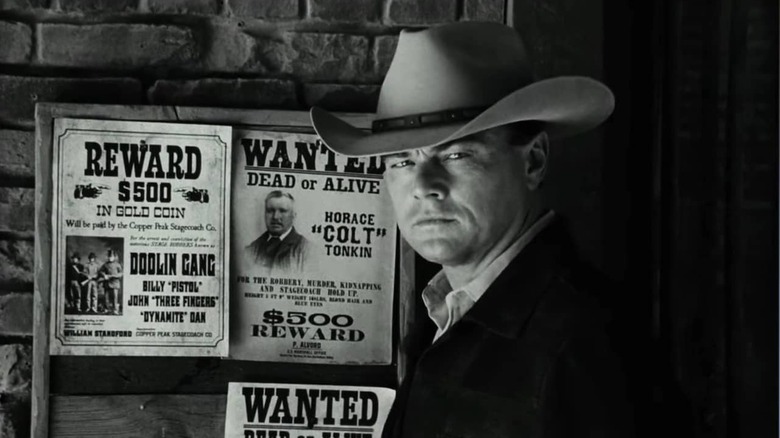
With "Once Upon a Time... in Hollywood," Tarantino not only recreated the world of '60s Hollywood, but developed in-universe projects reminiscent of the movies and TV shows of the era. In the film, Leonardo DiCaprio's fading movie star Rick Dalton tries to kickstart his career after years starring as good-natured lawman Jake Cahill on the weekly western television series "Bounty Law." While clips of "Bounty Law" are included in "Once Upon a Time...," Tarantino loved the concept so much that he wrote five half-hour scripts for episodes of the show.
Tarantino enjoyed the narrative constraints of a limited timeframe, and is considering approaching Netflix, HBO, FX, or Showtime about picking up a black-and-white series. He said he intends to write the scripts for three more episodes, and direct to every episode. While he doubts that DiCaprio would return to the role, he's open to recasting.
That's not the only project in the "Once Upon a Time... in Hollywood" universe that Tarantino has brought up. He's also mentioned a stage play adaptation, a spinoff called "Lancer" for Robert Rodriguez, and a fictional biography of Dalton. He released a novelization that includes additional scenes -- a full script for "Bounty Law" will be included in the upcoming hardcover release. Tarantino is no stranger to working with streaming services either, having worked with Netflix to re-edit "The Hateful Eight" as a four-part miniseries. After his final film, perhaps he'll have the time to shoot the throwback western adventure.
Killer Crow
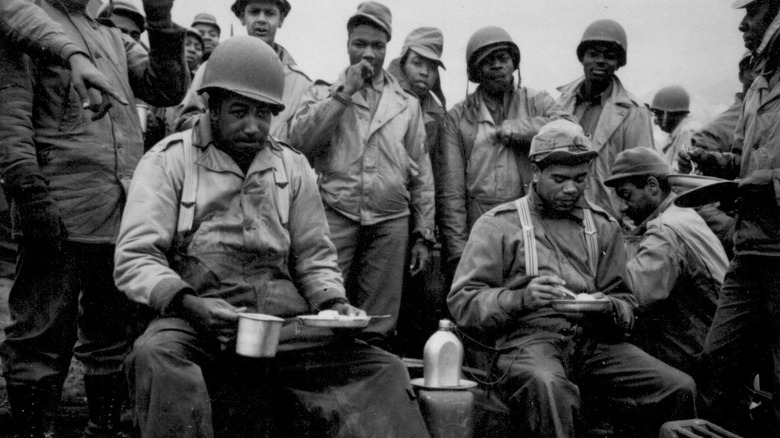
With "Inglorious Basterds" and "Django Unchained," Tarantino successfully translated his style to period settings. After those films, he almost did it again, making a third film in the unofficial trilogy. The World War II epic "Killer Crow" would have followed a group of African-American soldiers who, infuriated by their treatment by the American military, embark on a path of vengeance, storming US Army bases on the way to Switzerland.
Tarantino originally intended the story to be a subplot in "Inglorious Basterds," but decided to leave it out due to time constraints. When he considered expanding "Inglorious Basterds" into a miniseries, Tarantino had the entire storyline written. All it needed was an ending. And yet, Tarantino decided that "Killer Crow" deserved to be a standalone film. It would be interesting to see Tarantino once again highlight heroes who have faced discrimination -- as "Basterds" and "Django" prove, revenge missions undertaken by the downtrodden can be very rewarding to watch.
Westworld
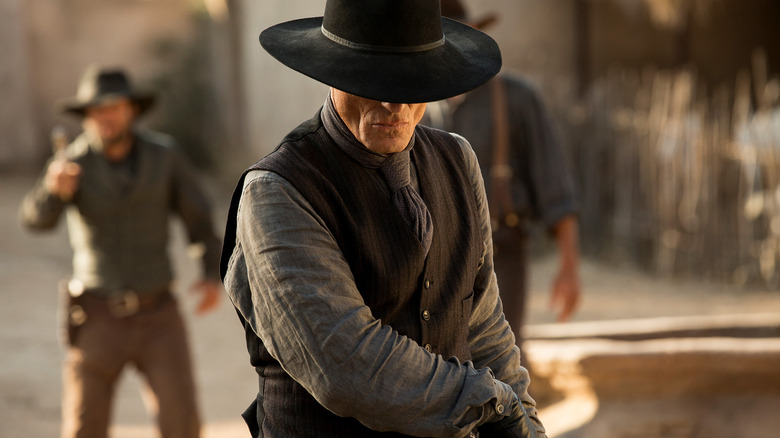
The 1973 film "Westworld" subverted the gunslinger genre by trapping futuristic characters in an Old West setting. In a theme park where lifelike androids embody western archetypes, visitors can indulge in their most depraved desires without harming living creatures. However, the robots become sentient and take vengeance on their oppressors. Before the film was adapted into an acclaimed HBO series, a cinematic remake was in development. Tarantino was offered a chance to direct, with a script from "Captain Phillips" screenwriter Billy Ray.
Tarantino has never set his films in the future, but he's more than comfortable with westerns, and a western-themed sci-fi film would have been a natural gateway into the genre. The fascinating philosophical questions "Westworld" asks would have given Tarantino room for some satire, and it would've been exciting to see if he could've crafted a villain as fearsome as Yul Brennar's gunslinger from the original film.
The Killer Inside Me
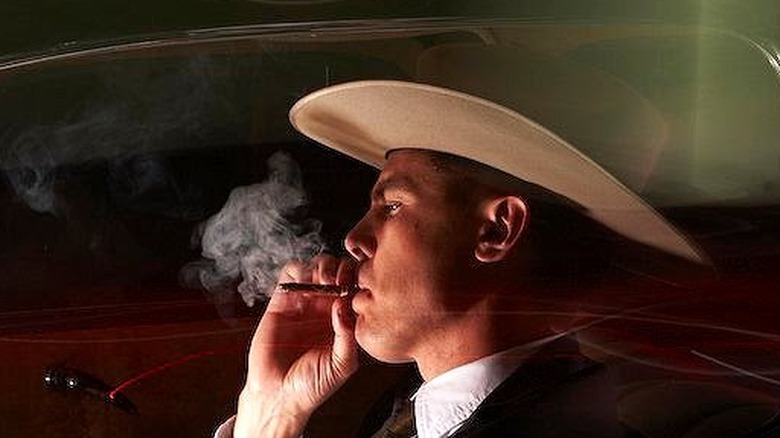
Jim Thompson's controversial 1952 novel "The Killer Inside Me" broke barriers with its uncompromising depiction of sociopathic tendencies and sexual trauma. The novel follows Texas deputy sheriff Lou Ford, who hides a murderous double life. Although it was adapted for the screen in 1976 by John Curran, Tarantino became attached to a remake in the mid-'90s. Tarantino's version would have starred Brad Pitt as the sadistic lead, with Uma Thurman as his girlfriend Amy Stanton. The project was scrapped after 9/11, as the violent content was deemed to be insensitive at the time.
Tarantino is no stranger to divisive material that sparks extreme reactions, and the cast he assembled was a dream team of his regular collaborators. With "Jackie Brown," Tarantino proved that he could adapt well-known crime novels and deliver his own interpretations, and the gritty material of "The Killer Inside Me" falls squarely in his wheelhouse.
Sgt. Rock
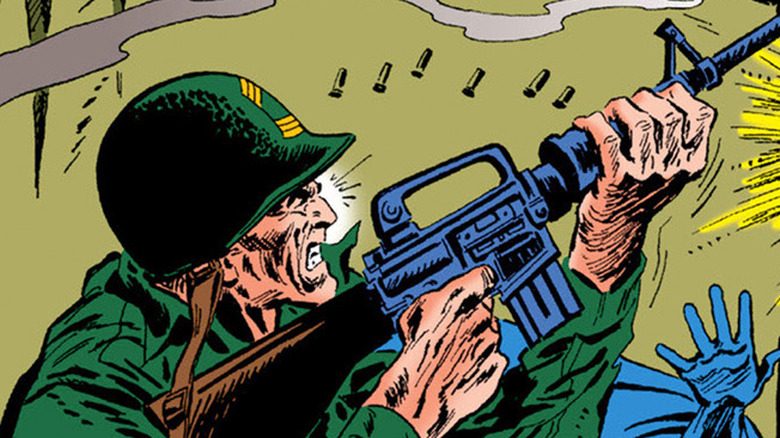
"Wonder Woman" was one of the rare comic book films that Tarantino saw in theaters, but at one point he had the opportunity to tackle another DC character. Sgt. Rock certainly isn't a superhero; the World War II veteran is renowned for his leadership skills, and while he's an expert sharpshooter and hand-to-hand combatant, his abilities aren't supernatural. Warner Brothers offered Tarantino the chance to direct an adaptation scripted by renowned "Blade Runner" and "Unforgiven" screenwriter David Peoples. Although he's generally adverse to directing other people's scripts, Tarantino called People's work "magnificent."
Sgt. Rock's first appearances in the "G.I. Combat" and "Our Army at War" placed Rock in the Pacific Theater, but later iterations brought him to different eras, even pairing him with the Suicide Squad. Tarantino would have room to craft an engaging story about a hardened veteran in whatever timeline he saw fit, and certainly could capture Rock's unflinching attitude.
Read this next: The 20 Best Westerns Of All Time
The post 13 Tarantino projects we never saw but wish we could've appeared first on /Film.
from /Film https://ift.tt/3icMJDm
via IFTTT
Comments
Post a Comment